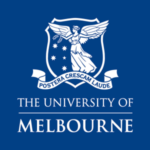Upcycling of Subsea Flexible Flowlines into Value-Added Materials
In February 2023, Austech Infrastructure Pty Ltd, in collaboration with its partners, was awarded grant CRCPXIII000078 by the Commonwealth of Australia’s Department of Industry, Science and Resources. This grant, part of the Cooperative Research Centres Project (CRC-P) Round 13 initiative, is dedicated to the research project focused on the upcycling of convoluted subsea flexible flowlines.
The grant, valued at AUD 3 million and totaling AUD 7.7 million when combined with other contributions, spans a duration of three years. Austech leads the project consortium and is tasked with delivering project milestones in a timely manner. The University of Melbourne is the primary research organization, supported by Subject-Matter Experts from Orangestream, Shelf Subsea, and Woodside Energy.
The project, titled “Upcycling of Convoluted Subsea Flexible Flowlines,” addresses the impending disposal issue and environmental hazard posed by decommissioned oil and gas subsea facilities in Australia. With approximately 11 facilities and 6000 km of flowlines set to be decommissioned within the next 30 years, the project aims to establish a new plant in Australia for upcycling marine waste. Through an innovative process, the project will recover steel and polymer materials, the primary constituents of flowlines, thereby mitigating the need for landfill disposal. The CRC-P funding will play a vital role in developing the upcycling process and facilitating the commercialization of the recovered materials.
Aims
The project aims to develop innovative upcycling solutions for decommissioned subsea flowlines, processing them into viable construction materials. These solutions will address a materials gap in the industry, with the retrieved materials intended for use in renewable energy and Defense installations. The project encompasses various scopes aimed at developing innovative upcycling solutions for decommissioned subsea flowlines. Initially, the focus lies on characterizing these flowlines, which are composed of layers of polymer and stainless steel, addressing challenges posed by chemical degradation, corrosion, and naturally occurring radioactive material contamination. Subsequent efforts involve the development of a cost-effective separation process for the flowlines, optimizing products to meet end-user requirements in construction and other sectors, and establishing a pilot recycling facility. Additionally, compliance, education, and training aspects are integral, including disseminating knowledge, creating compliance reports, and developing national training programs to engage potential end-users and integrate educational initiatives. The project aims to create high-value upcycled products for infrastructure applications, collaborating closely with relevant industries to ensure feasibility and applicability at an industrial scale.
Outcomes
- Enhanced Australian recycling industry capability
- Systematic dismantling and disjointing of decommissioned flowlines
- Automatic machinery for recovering decommissioned flowlines with reduced costs
- Characterisation of recovered materials to identify applications in a circular economy


